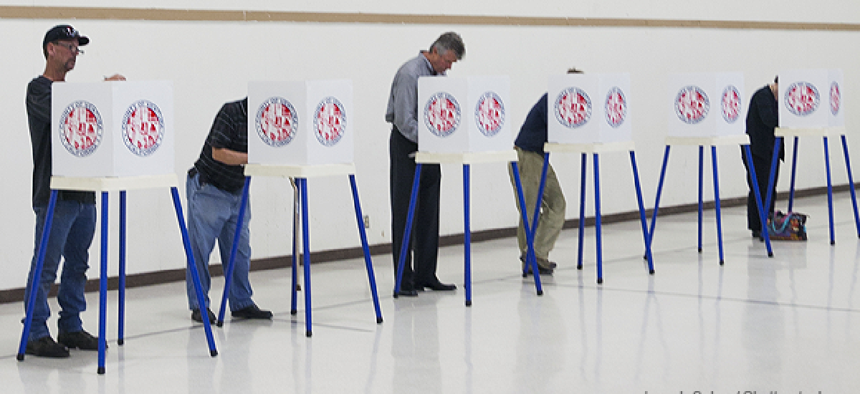Elections can't be secured by funding alone


Connecting state and local government leaders
The Senate's approval of $250 million in funding to states to secure voting infrastructure ahead of 2020 will not be enough, experts say.
When the Senate voted to approve $250 million in funding to states to secure voting infrastructure ahead of 2020, it looked like the path to more secure elections had been cleared. However, experts caution that those funds may be just a drop in the bucket.
The cost of replacing all the nation's paperless voting machines may run to $734 million over five years, according to estimates from the Brennan Center for Justice. Adding in costs to tackle other problems -- like protecting voter registration data, implementing post-election audits and extending cybersecurity assistance to state and local governments -- brings the total price to more than $2.1 billion.
Additionally, software licenses, maintenance fees and other costs to support voting machines past their first year can end up costing more than the initial equipment purchase, according to research from the OSET Institute. The costs are difficult to quantify because contract language tends to leave the timing, nature and additional costs of such updates at the discretion of voting machine manufacturers.
For now, the funds allocated by the Senate come without security-specific mandates. States can use the money on non-security related products and services or buy the same type of voting machines that Congress, security experts and the Department of Homeland Security say are obsolete.
Susan Greenhalgh of the Election Defense Coalition said her organization was pleased with the development but emphasized "this is not a problem that can solved by throwing money at it alone."
"We have an industry that is unregulated, with little to no accountability for the voting system vendors," Greenhalgh said in an email. "It's imperative that Congress include minimum security requirements that states must meet, attached to the federal funds."
"You're not going to be able to ban [paperless machines] through the appropriations process," Lawrence Norden of the Brennan Center for Justice said. "To set up minimum standards around cybersecurity and post-election audits … that's something that you need legislation for."
Senate Minority Leader Chuck Schumer (D-N.Y) sounded a similar note in remarks Sept. 19 on the Senate floor: "We're getting the money through appropriations, but we need legislation to refine where the dollars go."
A longer version of this article was first posted to FCW, a sibling site to GCN.
NEXT STORY: Cyber roundup




